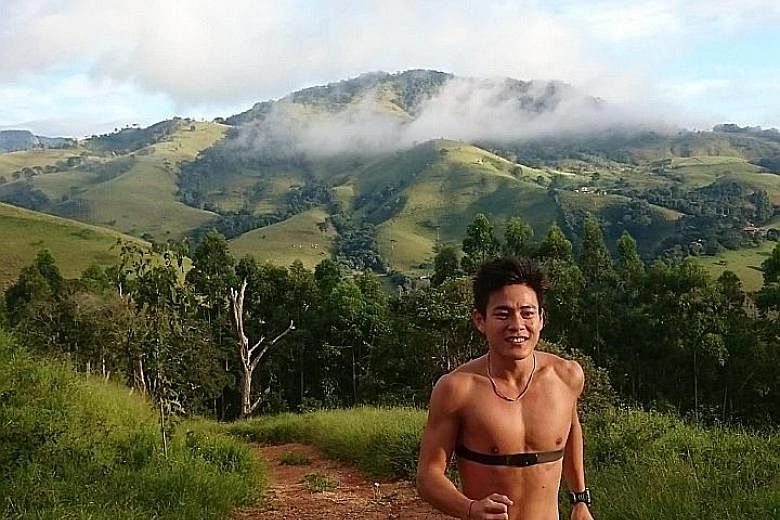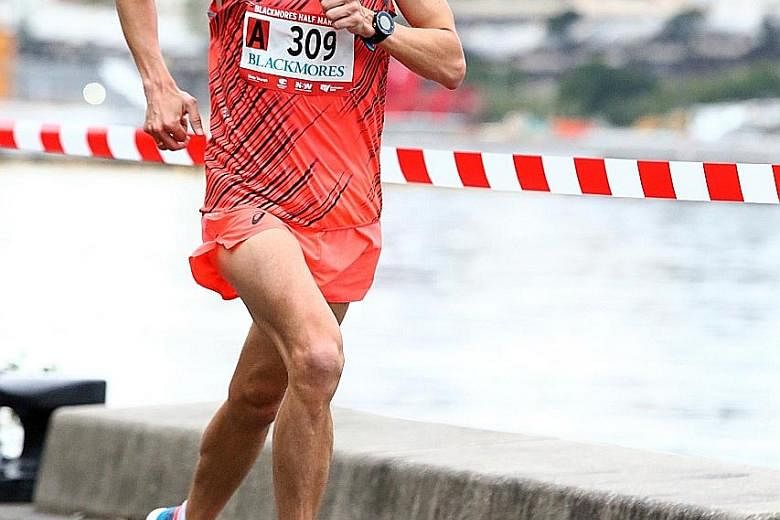Athletes are usually advised against exercising on an empty stomach, but two-time Commonwealth Games marathoner Ben Moreau believes running first thing in the morning before eating breakfast can be useful for those training for the 42.195km event.
This, he explained, allows the conditions of running a marathon to be simulated, where the body usually relies on its fat stores in the last 10km of the race after using its carbohydrate reserves.
The Briton, who featured in the 2010 and 2014 editions of the Commonwealth Games, said: "It's a little bit of a short cut to getting your body used to using its fat stores without running long distances - you can't do a lot of 30km runs when training for a marathon because it takes a lot out of you, so this can reduce the number of long runs that you do."
The 35-year-old data analyst, who has almost 20 years of running experience, did not always understand the importance of ensuring that his body could efficiently utilise its fat stores during the last leg of a marathon.
While he used to focus "too much" on carbohydrates, he now also relies on more fats and proteins - such as nuts, dates and a variety of meat - for fuel.
The Portsmouth native, who has been living in Singapore for the past four months, estimates that about 70 per cent of his diet used to consist of carbohydrates, but that percentage has been reduced to 30.
He clocked 2hr 24min 34sec at the 2010 Commonwealth Games marathon in Delhi (he finished 11th overall) and four years later posted 2:16:50 at the Glasgow Games (he finished 14th), after changing his diet at the beginning of 2013.
"I used to think carbs and sugar were the only food groups that mattered, but I didn't think about rebuilding efforts from training - when you're running a lot, you need a lot of protein to repair," Moreau, whose personal best in the marathon is 2:15:52, added.
"Generally I was always quite healthy, but I thought because I was running a lot I could eat anything and then burn it off later... I learnt over time that wasn't the case."
A recent New York Times article cited a study published last month by researchers from the University of Bath in England, which found that men burned more fat during walks on an empty stomach than when they had eaten first.
After eating, adipose tissue (or fat cells) "respond to the meal and a bout of exercise at this time will not stimulate the same (beneficial) changes in adipose tissue," noted Dylan Thompson, corresponding author of the study.
"This means that exercise in a fasted state might provoke more favourable changes in adipose tissue, and this could be beneficial for health in the long term."
Singapore runner Benjamin Ooi, who like Moreau is managed by ONEathlete, said fast food used to feature frequently in his diet when he was in school and later, when he was in the army.
The former schools water polo player said: "Those were different times. In water polo you need to be bulky and big, so we didn't really pay attention to our diet."
Ooi, 25, began running seriously about two years ago and ran his first marathon last month. He will compete in the Ironman World Championship in Hawaii in October.
Of the changing focus, he added: "Now there's greater awareness of healthy food and it's also more important to watch your weight as an endurance athlete."
He said he now tries to pick healthier options such as choosing brown rice instead of white rice, but stressed that he does not count calories nor have a specific "cheat day".
"When you go out with your friends and family and everyone goes to eat roti prata, you're going to eat roti prata and that's fine - you don't have to stuff yourself, just eat in moderation," he said.
Moreau agreed, adding: "I enjoy going out to restaurants and it's very hard to be really specific about your diet because you can't control every single variable, but you can have some general principles that you want to stick to."




